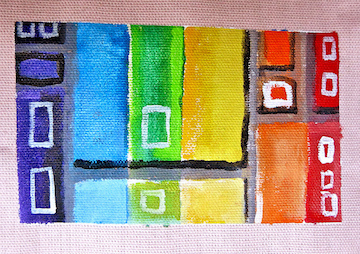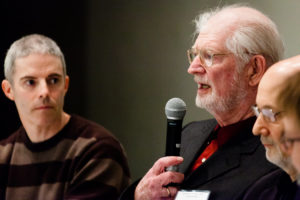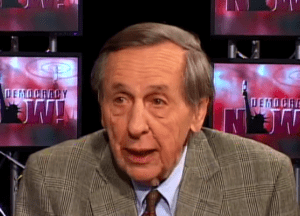Queerness and the Next System: Opening Up the Discussion
For centuries, the erasure of LGBTQ people from public policy has been the norm, but discussions about the economic future cannot sideline conversations around gender, sex and sexuality. torbakhopper / CC BY-ND 2.0
1
2
3
4
5
torbakhopper / CC BY-ND 2.0
1
2
3
4
5
This piece first appeared at The Next System Project, a U.S.-based think tank seeking to propose new social and economic systems based upon the well-being of communities.
For centuries, the erasure of LGBTQ people from public policy has been the norm. Trapped within the confines of our closets by regimes of sexual and gender conformity enforced by brutal violence, sterilization, and incarceration, LGBTQ people have long been denied formal political agency, legal recognition, and the ability to live as our full, authentic selves.
It can be tempting to forget that, even in 2016, a presupposition of heterosexuality remains an integral component of this country’s cultural firmament. Under these conditions, queer people — myself included — face the arduous task of every day speaking our queerness into existence, even in movement spaces.
This article is but one attempt to perform that speech-act — to name in a systems design space my own queerness, and in so doing, draw attention to the fact that radical endeavors like The Next System Project cannot afford to sideline conversations around gender, sex, and sexuality at the expense of dialogues on economic justice. This piece contends that when we as queer people are written out of conversation and disregarded in systems design models, those efforts become not only complicit in our historical erasure but often far weaker for not including our analyses.
In this article, I will use queerness and queer theory to open up space within The Next System Project for conversations around the connections between identity, desire, self-expression, and the structural conditions necessary for a “next system.” I will identify several categories of LGBTQ system design thinking which require greater discussion — from a comprehensive LGBTQ policy agenda to reflections on queer family-making and ethics of care. Throughout it all, I will contend that collective liberation requires more than the creation of a set of ideal economic conditions, but the establishment of strong norms of social solidarity which allow us to hold the diversity of each other’s identities and lived experiences — whether we be LGBTQ, people of color, ethnic or religious minorities, immigrants, indigenous peoples, differently-abled people, or non-US citizens.
Foundational Civil Rights
Before identifying several themes for future research on the intersection of queerness and The Next System, it’s important to ground ourselves in an awareness of the LGBTQ policy interventions urgently needed by the community and which must be incorporated into any cohesive blueprint for just, equitable systems design.
The first step towards envisioning a world where LGBTQ people can live as their full, authentic selves is to pass legislation which states clearly that the dignity of LGBTQ people — that our worth as human beings — is beyond reproach. To send a clear message to the country, this legislation should afford queer people equal access to employment, housing, and public accommodations. (For an example of what this might look like, see the text of The Equality Act, introduced in the summer of 2015 by Democratic members of Congress.) We should be insulated from attempts by religious extremists to dispossess us of our financial stability, social capital, and political voice. Yet, regardless of whether this first step is achieved through an act of Congress or through impact litigation, one thing must be clear: queer liberation will require far more than the passage of The Equality Act.
Indeed, a comprehensive LGBTQ justice agenda will require that we delve far deeper than LGBTQ-specific legislation to address the structural inequities affecting constituencies of queer people within some of the most powerful institutions of US civic life. To give a glimpse of what this sort of policymaking might look like, a short list of policy issues impacting specific segments of the queer community would include: LGBTQ youth policy, the treatment of LGBTQ people by the carceral state, and the provision of healthcare to LGBTQ patients.
Perhaps the most vulnerable within the LGBTQ community and the most in need of relief in a next system are young LGBTQ people. As a constituency, LGBTQ youth are “significantly over-represented in the juvenile justice system.” While representing 5 to 7 percent of the overall population, the 300,000 LGBTQ youth detained in juvenile facilities represent between 13 and 15 percent of total juvenile inmates. The Center for American Progress has been conducting ongoing research on this criminalization of LGBTQ youth. Pushed out of their homes by unsupportive families and into the “gray” economy, LGBTQ youth are disproportionately likely to engage in survival sex than their straight peers. Additionally, LGBTQ youth’s courageous insistence on living their truth in the face of obstinate school administrators often leads to them being labeled “incorrigible” and subjected to harsh disciplinary measures. Taken together, these factors push LGBTQ youth into the school-to-prison pipeline, preventing them from forging the familial and educational foundations for successful lives.
Your support matters…
SUPPORT TRUTHDIG
Independent journalism is under threat and overshadowed by heavily funded mainstream media.
You can help level the playing field. Become a member.
Your tax-deductible contribution keeps us digging beneath the headlines to give you thought-provoking, investigative reporting and analysis that unearths what's really happening- without compromise.
Give today to support our courageous, independent journalists.







You need to be a supporter to comment.
There are currently no responses to this article.
Be the first to respond.